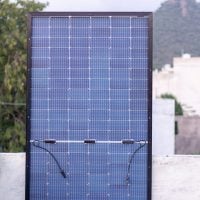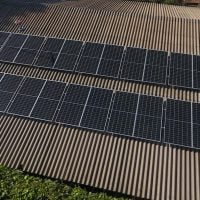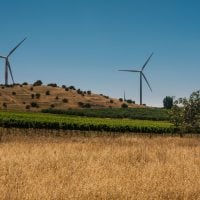Deadline: 13-May-24
The Environment and Conservation Fund (ECF) has announced submissions for the Environmental Education and Community Action Projects to provide funding support for projects and activities in relation to environmental and conservation matters.
The nature of Environmental Education and Community Action Projects (EE&CA) Projects are educational programmes or activities mainly to enhance community awareness and knowledge of environmental issues; and/or environmental projects that mobilise individuals to take direct and positive action to improve and conserve the environment and induce individual behavioural change towards a green and low carbon lifestyle.
All EE&CA Projects should target at bring positive impact on the environment with measurable and tangible outcome against the objectives set for the projects, based on the objectives set for the project. Applicant organisations should identify effective and innovative means, where possible, to achieve the project objectives and minimise the environmental impacts during project implementation, including waste generation, materials and energy consumption.
Types of EE&CA Projects
- EE&CA Projects are categorised in the following types:
- Special Theme Projects
- Prioritised thematic programme areas will be specified and announced by ECF Committee during the invitation for funding applications as appropriate Special theme projects are formulated, reviewed and adjusted annually in accordance with government policies. Each special theme project has its own total annual funding allocation. In 2024-25, the six special theme projects and their corresponding total allocations are tabulated as follows:
- Waste Reduction at Source
- Biodiversity
- Clean Shorelines
- Clean Air Plan
- Carbon Neutrality/Low Carbon Living
- Community Waste and Single-use Plastic Reduction Promotion
- The applicant organisation can choose only one special theme for each “Special Theme Projects” application. The applicant organisation and/or co-organisers should possess relevant professional knowledge/skills of the theme.
- Prioritised thematic programme areas will be specified and announced by ECF Committee during the invitation for funding applications as appropriate Special theme projects are formulated, reviewed and adjusted annually in accordance with government policies. Each special theme project has its own total annual funding allocation. In 2024-25, the six special theme projects and their corresponding total allocations are tabulated as follows:
- Special Grant Projects
- “Special Grant Projects” accepts applications from eligible organisations which have not been granted funding support from the ECF under the EE&CA Projects funding scheme and/or other eligible organisations (e.g. schools) as specified in each round of application invitation. There are no special restrictions on the expenditure items of the relevant projects, the reference level of funding support for each expenditure of this Guide does not apply to “Special Grant Projects”.
- General Projects
- Applications that do not belong to “Special Theme Projects” and “Special Grant Projects” are regarded as “General Projects”. Applications should meet the general nature of EE&CA Projects and cover one or more of the themes such as air, water, waste, food waste, noise, greening, energy and nature conservation, etc.
- Special Theme Projects
Funding Information
- Special Theme Projects: In 2024-25, the six special theme projects and their corresponding total allocations are tabulated as follows:
- Waste Reduction at Source: 10,000,000
- Biodiversity: 10,000,000
- Clean Shorelines: 10,000,000
- Clean Air Plan: 5,000,000
- Carbon Neutrality/Low Carbon Living: 25,000,000
- Community Waste and Single-use Plastic Reduction Promotion: 15,000,000.
- Special Grant Projects: The funding cap for “Special Grant Projects” is HK$100,000.
- General Projects: In 2024-25, the funding allocation for “General Projects” is HK$25,000,000.
Duration
- Each EE&CA Project should normally last for not more than 24 months, unless with justifications accepted by or as required by the ECF Committee for specific reason(s). For “Special Grant Projects”, the project period should not be more than 12 months.
Who may apply?
- Local non-profit making organisations (e.g. community bodies, green groups, schools and tertiary institutions, etc.) are eligible to apply for EE&CA Projects.
- Eligible applicant organisations should provide the following document(s), whichever is applicable, to support their eligibility as a local non-profit making organisation. Please refer to the following guidelines (if applicable) for the relevant supporting document requirements:
- Local tax-exempt charities
- Local tax-exempt charities refer to organisations which are exempted from tax under section 88 of the Inland Revenue Ordinance (Cap. 112). When submitting an application, the applicant organisation must provide:
- a copy of the letter issued by the Inland Revenue Department on tax-exemption under section 88 of the Inland Revenue Ordinance (Cap. 112);
- a copy of the organisation’s registration document;
- a copy of the organisation’s Articles of Association; and
- a list of the principal persons-in-charge and their positions;
- Local tax-exempt charities refer to organisations which are exempted from tax under section 88 of the Inland Revenue Ordinance (Cap. 112). When submitting an application, the applicant organisation must provide:
- Local registered and non-profit-making organisations
- When submitting an application, the applicant organisation must provide:
- a copy of the certificate of incorporation issued by the Companies Registry pursuant to the Companies Ordinance (Cap. 622) or the former Companies Ordinance (Cap. 32); or a copy of the certificate of registration pursuant to the Societies Ordinance (Cap. 151);
- a copy of the organisation’s Articles of Association (which must include clauses prohibiting the distribution of the organisation’s profits or properties amongst its members upon dissolution; and its objects and powers shall not include the distribution of profits to members); and
- A list of the directors/office-bearers and their positions.
- When submitting an application, the applicant organisation must provide:
- Local tax-exempt charities
For more information, visit ECF.









































